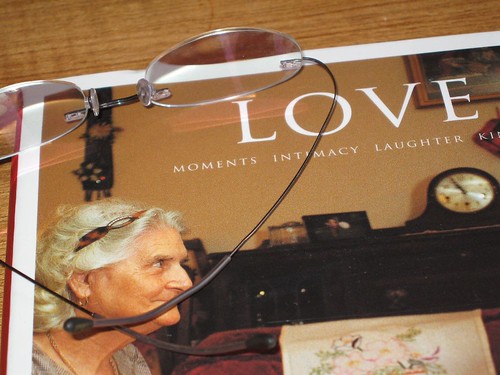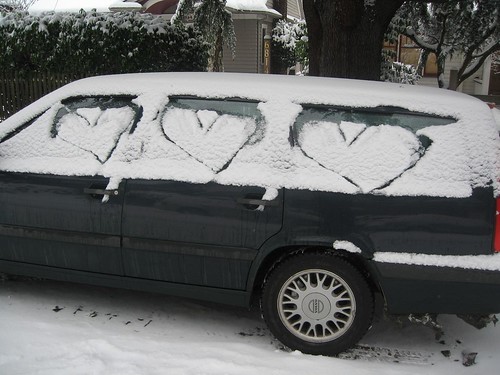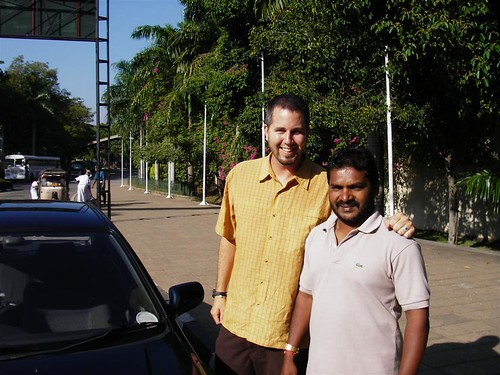You may find this an odd post from me, but bear with me. There is a point. But it takes a bit of a twisty path.
My friend Susan Partnow (of “Compassionate Listening” fame) passed along a note in an email list about a translation of the Christian “Lords Prayer” that struck me in a number of ways. First, the translation from the original Aramaic had echos of holy lines from other religions. It had for me, personally, a more universal feel and I could recognize its power in an open and less dogmatic way. For example, it resonated with the end of yoga-class greating of Namaste, “may the light in me greet the light in you.”
Second, it led me to reading a number of translations of the prayer that reminded me of the ease with which we both fall into our own ruts and the difficulty with which we can come to a shared understanding of a set of words. In the online world, this is our ongoing challenge with misinterpretation and frequent lack of shared meaning. In the world of multilingual people, this is an everyday practice – figuring out what is really meant be a word, and not relying on direct translation. But most of us don’t question the words we read or hear that carefully, nor are we attuned to such nuance.
Susan’s note had two other resonate pieces. The first was her picking out of this particular bit of translation that seems well worth reproducing in whole:
From a direct translation of the Lord’s prayer:
“Untangle the knots within so that we can mend our hearts’ simple ties to each other.”translated (note – site auto plays music) by Neil Douglas Klotz
These lines are most well known as “Forgive us our trespasses as we forgive those who trespass against us.”
Referring back to the Aramaic, which is a language in which each word has multivalent meanings, the complexity of a deeper level of causation is illuminated.
If we take up the work of untangling the knots within as the basis for forgiveness then we are empowered to develop a courageous heart. A courageous heart is helpful for the world is bound together by long lines of causation which are often modified by grief and pain that has not been processed through the collective body of mankind. Facing the ancient wells of deep pain takes courage…
The tangled web of grievance lives as a energetic structure in the subtler bodies of our being. It can be most pervasive and colors our interactions by creating a field of demand that is a form of displaced power. As long as hurt is a nest of our most common return then we approach our human family with a disempowered heart. This weakened state binds us into an attentive scanning of “other” in order to either protect ourselves or draw towards us the unfulfilled part of our own heart.
These knots tend to bind relationships into the expectation of the diminished heart. A view of ourselves and others from this state of being has difficulty releasing into the interconnected truth of our existence. In fact i have seen the diminished heart actively fight the implications of a more expansive connection.
“Our hearts simple ties to each other” is an elegant invitation to rest in the truth of our human family. We are here to love. In loving we find the power to comb out the tangles of our own
grievance and affirm the cradling of existence by its own capacity to nourish.
This idea of entangled hearts popped out at me. I see it in organizations struggling with their own dysfunction and amplified in challenging times. I see it on email lists, blogs and online forums. I see the power of heart disentangling when I watch people who are deeply skilled at conversation, listening and facilitation, both of themselves and with others. Both matter.
The second was her interpretation of the prayer in terms of both Compassionate Listening and Non Violent Communication. Susan wrote:
It seems to directly address what we work for in Compassionate Listening (and I think provides an interesting way to differentiate from NVC (non violent communication), which focuses on needs and thus may be dwelling on the unfulfilled tangles)
For those of you reading who are facilitators… a little food for thought. And here is Klotz’s translation. Enjoy…
The Lords Prayer
Oh Thou, from whom the breath of life comes, who fills all realms of sound, light and vibration.
May Your light be experienced in my utmost holiest.
Your Heavenly Domain approaches.
Let Your will come true – in the universe (all that vibrates) just as on earth (that is material and dense).
Give us wisdom (understanding, assistance) for our daily need, detach the fetters of faults that bind us, (karma) like we let go the guilt of others.
Let us not be lost in superficial things (materialism, common temptations), but let us be freed from that what keeps us from our true purpose.
From You comes the all-working will, the lively strength to act, the song that beautifies all and renews itself from age to age.Sealed in trust, faith and truth.
(I confirm with my entire being)

 As a follow up to my post on
As a follow up to my post on 
 , “Confianza.” The description reads:
, “Confianza.” The description reads: